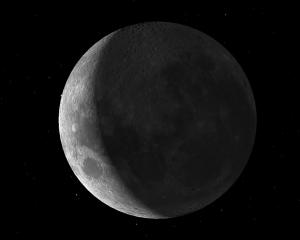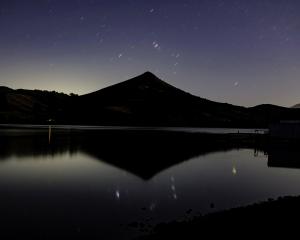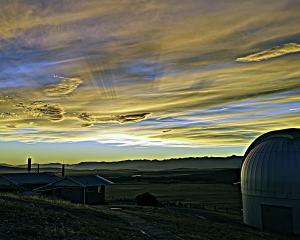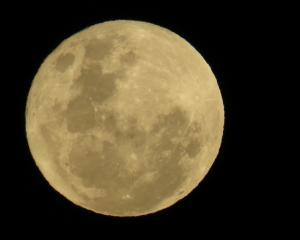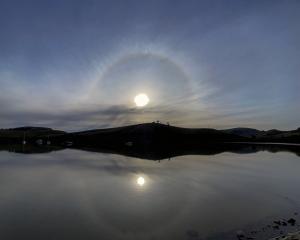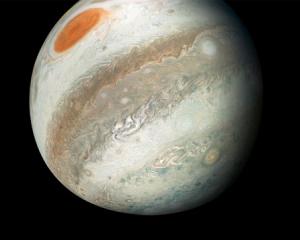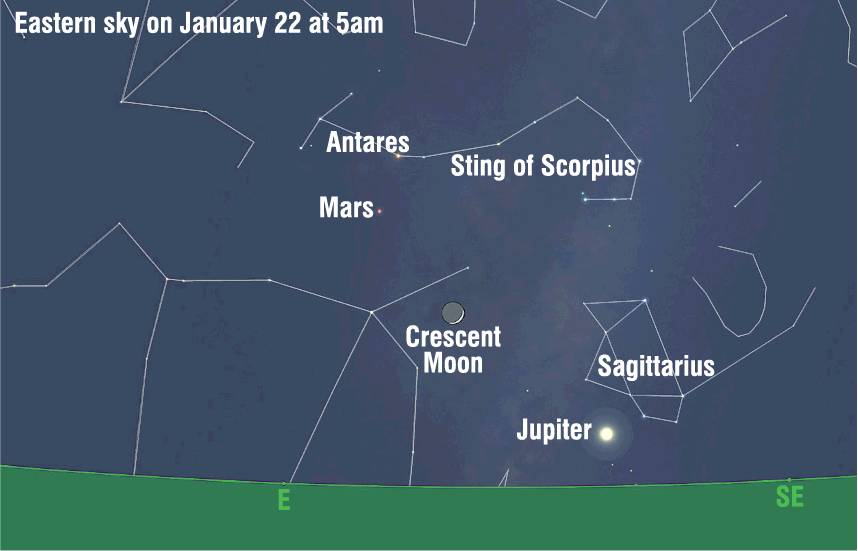
When I turned 50, Mrs G and I watched the sunrise from atop Sandymount. We then hot-footed it across the South Island so we could enjoy a sunset from the West Coast.
To celebrate the completion of my 54th orbit around the sun on January 22, I am not going to be quite as adventurous. Instead, I intend to get up a couple of hours before sunrise and find myself a location with an unobstructed eastern horizon.
This early start is driven by my desire to witness what I hope will be a pretty celestial alignment involving Mars, the moon, and Jupiter.
Mars is first to rise, clearing the horizon just after 2.30am. The red planet is in the constellation of Ophiuchus. Despite being located in Ophiuchus, Mars is also quite close to Antares, the brightest star in Scorpius, the scorpion.
The red planet reaches its nearest point to Earth in October, when it will be just over 62 million kilometres away. This week, the planet’s distance is more than 300 million kilometres.
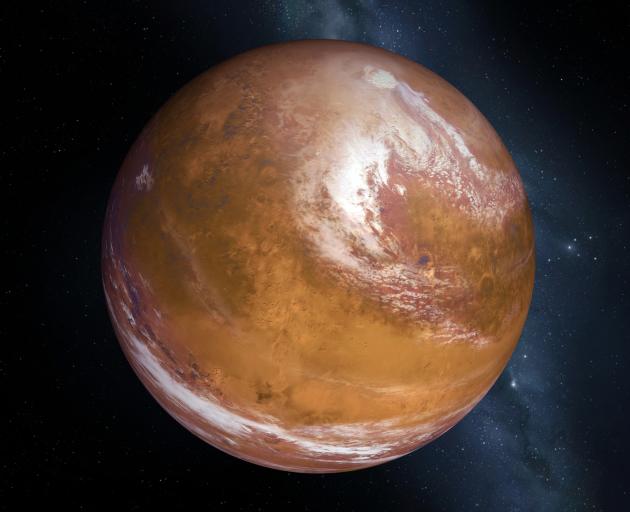
Keep an eye out for ghostly earthshine, which is always delightful when the moon is young and old. Next Wednesday morning, the moon will be just over 382,000km from Earth.
Jupiter is the last of our celestial triplet to rise, becoming apparent low in the east shortly after 4.30am. An hour later, the largest planet in the solar system will be clearly visible as a brilliant yellow/white “star” some 5deg above the horizon. Jupiter is more than 900 million kilometres away from us.
Despite its distance, Jupiter is always worth looking at through a telescope. Despite being low in the sky, you should be able to make out the Great Red Spot close to the planet’s limb.





